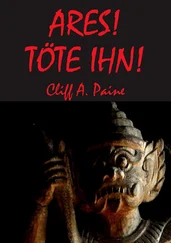United Artists had set it up so that Ramon Drube, the corrupt Indian politician and the heart of the Cash-for-Sugar row, took a timely pratfall into a keg of eels when he bestrode his next electoral platform.
Gyorgy Krinz, a powerful lawyer with contacts among the Exalted Families, was also a notorious seducer of young boys in public conveniences, until United Artists, in a complex sting operation, converted an innocent WC into an all-singing, all-dancing musical extravaganza featuring the Cottage Boys in gold lamé and urinals fountaining flames like coloured roman candles. It was broadcast live on three networks. Viewing figures went through the roof. Gyorgy Krinz went off the roof. Convictions against the Exalted Families became more regular.
Mavda Quinsana, daughter of the more famous mother, ran a small but effective money-laundering empire from a few artificial atolls in the Syrtic Sea. Conventional justice failed, until United Artists slipped her a mickey in a margarita and convinced her, through clever suggestion and set design, that she had died and gone to hell, whereupon she fessed up all her known crimes and a wodge more nobody had even suspected. The walls of the fake hell opened, the shirrifry marched in, the real hell began.
Shareholder meetings of several big companies with pie-flavoured fingers were spectacularly disrupted by Amanda the Corporate Crime-busting Armadillo, frequently provoking shareholder riots when the extent of board-member remunerations were made public. United Artists, again.
Last night, United Artists had arranged for a very large chocolate cake to be delivered to the Gubernatorial Pleasance in Molesworth. Ooohs, ahhs. As the new Gubernator leaned forward with his cutting knife, the top had blown off and out leaped Seetra Annulka, Cossivo Beldene’s former mistress, dressed in a spangled bikini, silver bootees and hoolie-hoolie feathers. As painstakingly rehearsed, she strutted up and down the stage to the whoops and cheers of the guests, singing a specially commissioned song. The whoops and cheers had grown louder as the audience became aware of the lyrics which had to do with nipple clips and glue, poultry, hooks in the ceiling, orphan girls in pristine white panties and stuffing the state jewels of Canton Chimeria into orifices not designed to show them off to their fullest glory. By the third verse there was not a whisper in the great Festhall.
To a riot of laughter and outrage in equal measures, Cossivo Beldene, his entourage and his guests were off stage before the final chorus. Shortly after the first chair was thrown and the fight broke out that was to spread from the Rathaus to the entire city.
Now, in the early light, with the smoke of burning washing still on the air, United Artists were reading their reviews.
“Gobbling Gubernator Feast-Farce,” Skerry read, fresh and tight after her morning run, which she did for ten kilometres every day, riot or no riot. Whatever, wherever, whoever, she always showed a lot of healthy, glowing skin.
“A bit overdone on the alliteration,” the solemn black man, Bladnoch, said in his soft, low voice. The best comedians seldom laugh. He had been the comedian’s comedian; so funny he backed into being not funny at all. “Ball-clamp Beldene in hiding,” he read, from his copy of The Chimerian , then flipped the paper over to the sports section.
“As in, hiding out, or a good hiding?” the languid, over-pierced woman said. She was Mishcondereya, bad daughter of a very good family, and even drinking morning tea she radiated a hunting-cheetah grace and lethargy that was at once attractive and extremely irritating. She was natural-born aristocrat. Of course, she had the quality daily, Landing Times : “Anarchy Rules Molesworth: Mobs Run Riot as Beldene Falls. That should please you, Weill.”
The little skinny anarchist merely picked pieces of mint off his teeth. The over-tall, over-loud, over-coiffed and over-corseted middle-aged man in his trademark too-small silver suit commented from behind his Impartial Reporter , “I thought better of the Times ’s editorial than to let an oxymoron like that on to the front page. You know, I remember when I was on the riverboats, I once met a newspaper copy-editor. Or was it a typesetter?” Seskinore’s reminiscence was submerged by a chorus of derision from his fellow artistes. He added, lamely, “They’re trying to get Glenn Miller to release it as a single with vocals by Seetra Annulka. We could be in for royalties.”
“I’d buy it,” Weill the anarchist said.
“Steal it, more like,” Mishcondereya sniped. “Did you pay for that Harbinger ?”
“Of course not.” In twelve months training and thirty-six as roving agents of the Synod of Anarchs, Mishcondereya had not yet learned that Weill took her blunt little sarcasms as compliments. “No one buys when Babylon burns. This capitalist rag gives us a decent write-up.”
“Is it top of the hour news yet?” Skerry asked.
“Seven bells,” Weill said, nodding across the ruined plaza at the municipal clock on the tram-halt. Every piece of glass had been reduced to sugar cubes, but the naked hands told the time, slowly, steadily, for Molesworth. “Looks like it. Is there a wireless in this place? Well, look who it is.”
A lady in widow’s black was crossing the plaza, stepping resourcefully over the wiry piles of charred tires, ignoring the paperlads’ entreaties. She held her hands folded decorously and did not look in the least out of place in the aftermath of Mob.
Seskinore folded down his paper, raised his eyebrows.
“Ah, our interestingly pedigreed trainlady.”
“What the hell is she doing here?” Skerry demanded, sliding on a pair of dark glasses. “You know, Weill, sometimes you piss me right off. In fact, most of the time. Okay, she did us a favour, the little old dear’s got some kind of weird shit trainpeople magic thing—enough inbreeding, you can do anything—but you shouldn’t have invited her to the show. Least of all, our own table. I worry about your sense of security, comrade.”
“At least I have a sense of decency,” Weill said. “I don’t know about you Tharsians, but in Grand Valley, even us anarchists treat our grandparents with due respect.”
By now Grandmother Taal had arrived at the tea party on the verandah. The past ten hours had been a whirring daze of some notion or other. Forty-something years, and life can still knock you silly. The strange doings with that cake in the back alley, the unexpected invitation to the Pleasance, the very fine food and wine as she sat with these odd people—the last one would imagine on the guest-list for such a lofty event: then everything being thrown up in the air to hang a fearful minute while the girl in the silver spangles sang the satirical song, only to come crashing down in a rush of reporters, a lightning storm of camera flashes and a broadside of chairs flung toward the stage. She had followed United Artists as they fled, skulking along the lines of tables as the fighting broke out overhead, thanking her newly young knee and back bones. Her first thought had been to go with the band, but all she saw of the King of Swing was his tour bus driving away at speed, chased by a pelt of bottles and hurled imprecations that the Glenn Miller Orchestra would never sell another record in this town again, buddy. The fighting had by now transferred to the streets; she was alone in the great Rathaus . Plenty of places to sleep. It would not be the first time, Grandmother Taal thought as she swept broken glass from the plush sofa, wrapped herself up in table cloths and bedded herself down for the night. Nor, she sensed with grandmotherly insight, would it be the last. Outrage, riot, confusion, and then the dream.
Читать дальше












